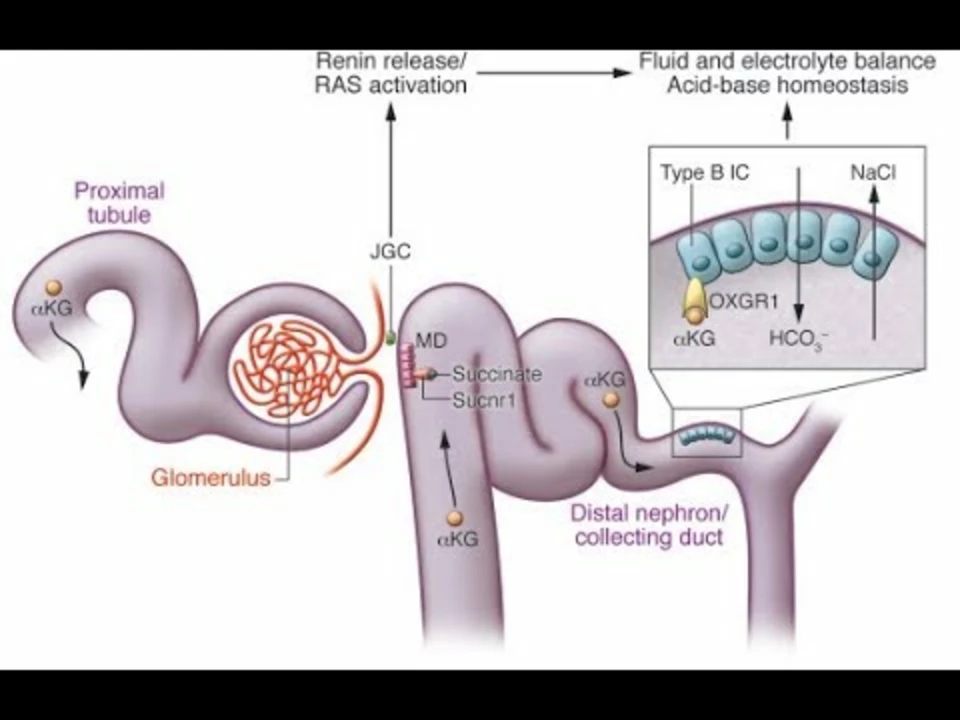Understanding Hyponatremia: A Brief Overview
Before we delve into the link between hyponatremia and gastrointestinal disorders, it's important to first understand what hyponatremia is. Hyponatremia is a condition characterized by low sodium levels in the blood. Sodium is an essential electrolyte that helps regulate water balance in and around our cells, and it also plays a crucial role in maintaining normal blood pressure, nerve, and muscle function.
When our sodium levels drop too low, it can lead to an imbalance of fluids in the body, causing cells to swell. This swelling can be particularly dangerous when it occurs in the brain, leading to potentially life-threatening complications. There are several causes of hyponatremia, including dehydration, certain medications, and some medical conditions. One such medical condition that can contribute to hyponatremia is gastrointestinal disorders, which we will explore further in this article.
Gastrointestinal Disorders and Sodium Loss
Gastrointestinal disorders can lead to hyponatremia due to the loss of sodium through vomiting and diarrhea. When we experience these symptoms, our body loses not only water but also essential electrolytes, including sodium. Prolonged or severe vomiting and diarrhea can result in a significant loss of sodium, making it difficult for our bodies to maintain a healthy balance.
In addition to the direct loss of sodium, gastrointestinal disorders can also interfere with our body's ability to properly absorb nutrients, including sodium, from the food we eat. This can exacerbate the problem and increase the risk of developing hyponatremia.
Recognizing the Symptoms of Hyponatremia
It's important to be aware of the symptoms of hyponatremia, especially if you have a gastrointestinal disorder that may increase your risk of developing this condition. Symptoms of hyponatremia can range from mild to severe and may include headache, nausea, vomiting, confusion, seizures, and even coma in extreme cases.
While some of these symptoms may also be present in those suffering from gastrointestinal disorders, it's essential to recognize when they may be indicative of hyponatremia and seek prompt medical attention. Early detection and treatment can help prevent severe complications and improve outcomes for those affected by this condition.
Preventing Hyponatremia in Individuals with Gastrointestinal Disorders
There are several steps you can take to help reduce your risk of developing hyponatremia if you have a gastrointestinal disorder. First, it's important to stay well-hydrated by drinking plenty of fluids, especially when experiencing vomiting or diarrhea. However, it's crucial to be mindful of the type of fluids you consume, as some can worsen hyponatremia.
Drinking water alone may not be sufficient to replace lost sodium, so consider incorporating electrolyte-rich beverages, such as sports drinks, into your hydration routine. Additionally, ensure that your diet contains an adequate amount of sodium to compensate for any losses due to your gastrointestinal disorder. Your healthcare provider can provide specific recommendations based on your individual needs and circumstances.
Treatment Options for Hyponatremia
If you've been diagnosed with hyponatremia, it's important to work closely with your healthcare provider to determine the most appropriate treatment plan for your situation. Treatment options for hyponatremia may include addressing the underlying cause of the condition, such as treating a gastrointestinal disorder, adjusting medications that may be contributing to low sodium levels, or implementing lifestyle changes to help manage the condition.
In some cases, your healthcare provider may recommend intravenous (IV) fluids to help restore your sodium levels more quickly. It's essential to follow your healthcare provider's guidance and monitor your symptoms closely to ensure the most effective treatment for your specific needs.
Living with Hyponatremia and Gastrointestinal Disorders
Managing both hyponatremia and a gastrointestinal disorder can be challenging, but with the right support and guidance, it is possible to live a healthy and fulfilling life. In addition to working closely with your healthcare provider to develop a comprehensive treatment plan, consider connecting with others who share similar experiences.
Support groups, online forums, and local community resources can provide valuable information, encouragement, and a sense of camaraderie for those navigating the complexities of these conditions. Remember that you're not alone, and by seeking out the right support and resources, you can take control of your health and well-being.
Conclusion: The Importance of Awareness and Proactive Management
Understanding the link between hyponatremia and gastrointestinal disorders is crucial for those living with these conditions, as well as for healthcare providers who treat them. By recognizing the symptoms of hyponatremia, taking preventative measures, and working with your healthcare team to develop an effective treatment plan, you can minimize the risks associated with this condition and improve your overall health and well-being.
If you suspect that you may have hyponatremia or are experiencing symptoms that may be related to this condition, don't hesitate to reach out to your healthcare provider for guidance and support. Early detection and intervention can make a significant difference in your health and quality of life.


Abhishek Vernekar
I really appreciate the thorough breakdown of hyponatremia risks for anyone dealing with GI issues. Staying aware of electrolyte balance can truly be life‑saving.